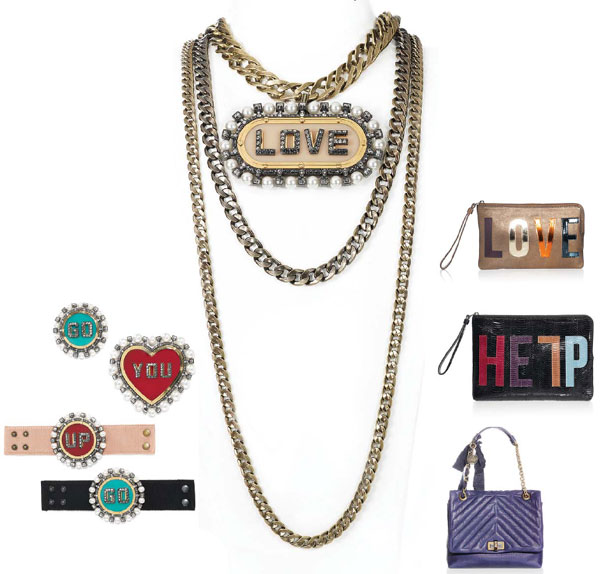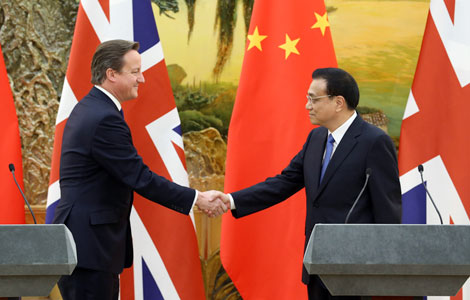Luxury looks to locals
Updated: 2013-12-02 07:41
By Gan Tian (China Daily)
|
||||||||
French label Lanvin has bucked a trend by selecting a local online retailer to launch its flagship e-commerce store in China. Gan Tian reports on why this could be a wise move for the savvy retailer.
When launching e-commerce platforms in China, most big labels like Emporio Armani, Marni and Bally choose to work with foreign portals like Yoox Group, but French luxury house Lanvin recently announced it has hired Shangpin.com, a local luxury online retailer to create their flagship online store.
The store, under Shangpin.com, sells menswear, womenswear, bags, accessories and shoes. The products are selected by staff members from Shangpin.com and buyers from Lanvin China.
|
French luxury house Lanvin cooperates with Shangpin.com to sell womenswear, bags, accessories and shoes. Photos Provided to China Daily |
The prices are the same as they are in Lanvin's bricks-and-mortar boutiques. A women's long T-shirt, with a three-dimensional butterfly print, is priced at 9,200 yuan ($1,530), while a leather biker jacket, worn by the male model in Lanvin's latest ad campaign, costs 35,100 yuan - no lower than in the boutique stores.
Though these prices are not competitive, Lanvin believes there are benefits to having an online platform.
"Shangpin.com has a large VIP customer base. At the same time, it provides good customer service, and it has the capacity to reach rich customers in third- and fourth-tier cities in China, where Lanvin has not opened stores yet," says general manager of Lanvin China Lily Liu.
She says the brand has researched the Chinese e-commerce market for two years and decided that a collaboration with Shangpin.com was the best way to move online.
The portal was founded by Zhao Shicheng in 2010, when China's luxury industry was at its peak and luxury e-commerce was ripe for expansion. In recent years, Shangpin.com gained more than 2.4 million consumers nationwide.
Having a single-brand section on a multi-brand site like Shangpin.com, founder and CEO Zhao believes, is an organic way of running e-commerce for foreign luxury labels. He has observed that many single-brand business-to-consumer sites, powered by third parties, failed in the Chinese market.
"Because Chinese online consumers like to shop in a multi-brand environment, where they can choose from numerous of products," he says. If this model is used, Zhao adds, "the brand can maintain its own independent branded stores, which are separate from the brands in our own multi-branded retail area, but can also attract the consumers."
According to Shangpin.com, La Perla will also launch its flagship e-store on the site, and more brands are set to follow.
At the end of last year, Italian luxury brand Salvatore Ferragamo authorized China's Xiu.com to sell its official products.
Tang Xiaotang, a well-known independent fashion critic, says this model will eventually benefit luxury labels' image in the e-commerce sector.
"It has been a running debate among China's online platforms and foreign luxury labels for a long time. They used to say many of the products sold on China's B-to-C sites are not authorized by those foreign labels.
"But this collaboration will stimulate the luxury e-commerce industry to enter a healthy level. It provides a platform for consumers to reach authorized, real products from luxury brands," Tang says.
However, Tang does not think it will help a lot in terms of sales of these luxury labels on its online platform. According to his observation, most of the sales are still made in real boutiques.
"But this model will serve as a 'test' for luxury brands. They will see which regions are potential markets from statistics of e-commerce, and then eventually open stores there," he says.
Contact the writer at gantian@chinadaily.com.cn.
(China Daily 12/02/2013 page22)
Most Viewed
Editor's Picks

|

|

|

|

|

|
Today's Top News
China shares slide on move to restart IPOs
Economic rebound not likely: group
Cheap luxury, startup required
 Drama Rhinoceros In Love staged in New York
Drama Rhinoceros In Love staged in New York
Washington's panda named Bao Bao
Candid exchange key to Biden's visit
At least 4 dead in NYC commuter train derailment
China's new billionaires may have a lot to learn
US Weekly

|

|















